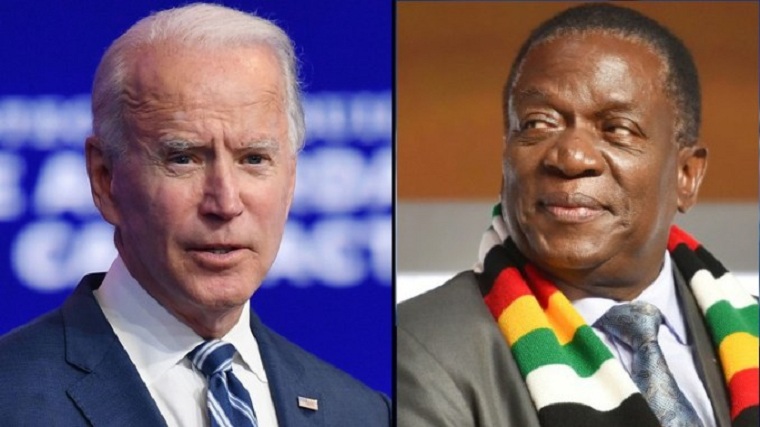 Zimbabwe was invited to the United States-Africa summit to be held from 13-15 December, despite being on US sanctions for 20 years, because Washington recognises that Africa will shape the future of the world and also because the United States is losing out to China diplomatically.
Zimbabwe was invited to the United States-Africa summit to be held from 13-15 December, despite being on US sanctions for 20 years, because Washington recognises that Africa will shape the future of the world and also because the United States is losing out to China diplomatically.
Washington says in its strategy paper toward Sub-Saharan Africa, published in August: “Sub-Saharan Africa is critical to advancing our global priorities. It has one of the world’s fastest growing populations, largest free trade areas, most diverse ecosystems, and one of the largest regional voting groups in the United Nations (UN).”
While Africa remains the poorest continent, the US says: “It is impossible to meet this era’s defining challenges without African contributions and leadership. The region will factor prominently in efforts to: end the COVID-19 pandemic; tackle the climate crisis; reverse the global tide of democratic backsliding; address global food insecurity; strengthen an open and stable international system; shape the rules of the world on vital issues like trade, cyber, and emerging technologies; and confront the threat of terrorism, conflict, and transnational crime.”
On its strategy towards Africa, Washington says: “This strategy reframes the region’s importance to US national security interests. In November 2021, Secretary of State Antony Blinken affirmed that ‘Africa will shape the future—and not just the future of the African people but of the world’.”
Africa’s importance to the United States is also clearly demonstrated in an article by the United States Institute of Peace, published yesterday.
It lists 10 things to know about the US-China rivalry in Africa.
It goes:
Next week, nearly 50 African heads of government plan to be in Washington, D.C. for the U.S.-Africa Leaders Summit. A broad range of issues will be discussed, from food security to global health to education. While rightly not on the formal agenda — the summit is about the United States and African countries — the United States’ rivalry with China, and how it impacts Africa, will be in the background of this major diplomatic event, certainly to be discussed and analyzed in private conversations surrounding the summit.
The Biden administration’s U.S. Africa strategy, released in August, correctly notes that “Sub-Saharan Africa’s governments, institutions, and people will play a critical role in solving global challenges.” In discussing other countries’ growing engagement with Africa, the strategy starkly assesses that China views Africa as “an important arena to challenge the rules-bases international order, advance its own narrow commercial and geopolitical interests, undermine transparency and openness, and weaken U.S. relations with African peoples and governments.” I think this is right. To advance U.S. interests effectively, Africa policy must be based on a realistic assessment of Chinese activity on the continent, one that appreciates the African perspective.
Continued next page
(261 VIEWS)

